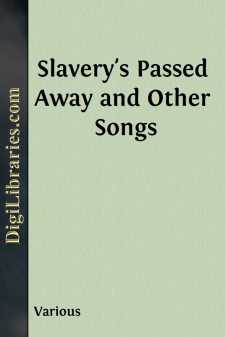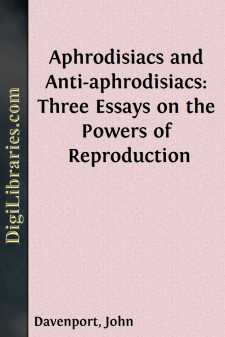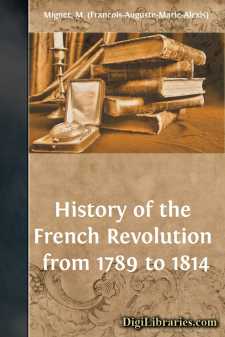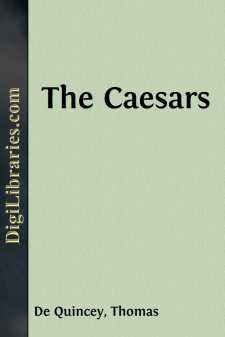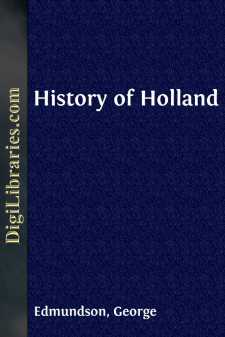History
- Africa 30
- Americas (North Central South West Indies) 50
- Ancient 68
- Asia 58
- Australia & New Zealand 8
- Canada 41
- Caribbean & West Indies 1
- Civilization 20
- Eastern Europe 12
- Europe 310
- Expeditions & Discoveries 60
- General 77
- Historical Geography 1
- Jewish 9
- Latin America 3
- Medieval 8
- Middle East 14
- Military 248
- Revolutionary 8
- Study & Teaching 5
- United States 353
- Western Europe 56
- World 13
History Books
Sort by:
by:
Various
Slavery's Passed Away. As sung in Edward Harrigan's Drama, Words by EDWARD HARRIGAN. Music by DAVE BRAHAM. Copyright, 1887, by Wm. A. Pond & Co. Listen | View/Download Lilypond 1. Oh child come to me and just sit down by my knee,I'll tell that same old story just once more;Of dark, clouded years, oh, so full of bitter tears,In those bondage days of long before the war.In...
more...
by:
John Davenport
ESSAY I. REMARKS UPON THE SYMBOLS OF THEREPRODUCTIVE POWERS. ROM the investigations and researches of the learned, there appears to be no doubt but that the most ancient of all superstitions was that in which Nature was contemplated chiefly under the attribute or property of fecundity; the symbols of the reproductive power being those under which its prolific potencies were exhibited. It is not because...
more...
INTRODUCTION Of the great incidents of History, none has attracted more attention or proved more difficult of interpretation than the French Revolution. The ultimate significance of other striking events and their place in the development of mankind can be readily estimated. It is clear enough that the barbarian invasions marked the death of the classical world, already mortally wounded by the rise of...
more...
[I saw that money is the cause of suffering and vice among the people, and that, if I desired to help people, the first thing that was required of me was not to create those unfortunates whom I wished to assist. I came to the conclusion that the man who does not love vice and the suffering of the people should not make use of money, thus presenting an inducement to extortion from the poor, by forcing...
more...
by:
F. L. Morrison
FROM MOBILISATION TO THE EAST. The period from the date of mobilisation to the date on which we began our active service experiences we propose to pass over quickly, as the events which happened then seem now of small interest to those coming later. With orders prepared carefully in peace time, mobilisation went smoothly. The Normal School, Glasgow, became a barracks and a place for the busy public of...
more...
A DESTROYER IN ACTIVE SERVICE BY AN AMERICAN OFFICERApril7.War accepted with equanimity.Life on a destroyer is simple.Well, I must confess that, even after war has been declared, the skies haven't fallen and oysters taste just the same. I never would have dreamed that so big a step would be accepted with so much equanimity. It is due to two causes, I think. First, because we have trembled on the...
more...
EGYPT AND THE SUEZ CANAL The Holy Land has been the scene of war since the dawn of History. Long before Belgium became the cock-pit of Europe, Palestine was the cock-pit of the known world. Here, on the high road between Asia and Africa, were fought the great wars of Egyptians and Assyrians, Israelites and Canaanites, Greeks and Romans, Saracens and Crusaders. With these few square miles are associated...
more...
THE CÆSARS. The condition of the Roman Emperors has never yet been fully appreciated; nor has it been sufficiently perceived in what respects it was absolutely unique. There was but one Rome: no other city, as we are satisfied by the collation of many facts, either of ancient or modern times, has ever rivalled this astonishing metropolis in the grandeur of magnitude; and not many—if we except the...
more...
by:
George Edmundson
CHAPTER I [pg.1] THE BURGUNDIAN NETHERLANDS The last duke of the ancient Capetian house of Burgundy dying in 1361 without heirs male, the duchy fell into the possession of the French crown, and was by King John II bestowed upon his youngest son, Philip the Hardy, Duke of Touraine, as a reward, it is said, for the valour he displayed in the battle of Poictiers. The county of Burgundy, generally known as...
more...
ORIGIN OF THE PURPOSE OF THE TRIP N the Autumn and Winter of 1915, a body of distinguished and representative Frenchmen visited the United States, their object being to make an investigation of conditions here, having in mind the great need of France in war munitions, the steel in ingot and bar form very much needed for the manufacture of war materials, and the numerous other commodities necessary for...
more...


